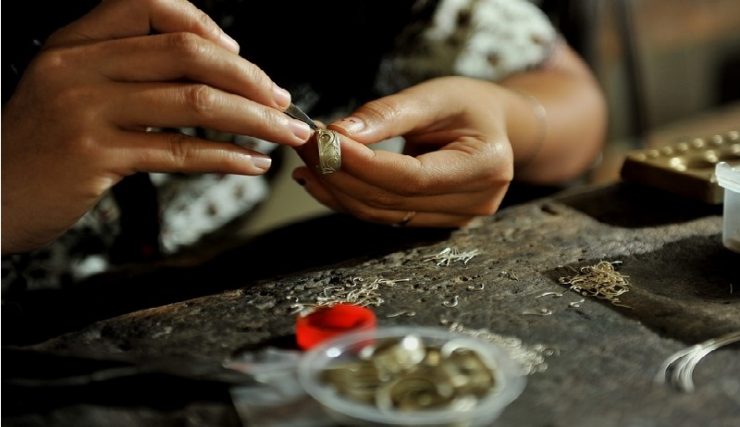EVERYONE must have had a dream to build a business starting from a small business to eventually developing into a world-class business empire. Often, that dream is shattered by the question, “where does the capital come from?”.
Those who are still determined to make their dreams come true also have to deal with the hassle of dealing with the bureaucracy to set up a company.
But all of that has now changed along with the development of technology and the government’s seriousness to cut the bureaucracy in order to pave the way for small entrepreneurs to start their business development.
The Indonesia’s (RI) government’s seriousness was realized by the Ministry of Cooperatives and Small and Medium Enterprises (KemenkopUKM) through Smesco Indonesia by cooperating with a private party, namely kontak Hukum.com to build an online platform http://badan-hukum.smesco.go.id.
What’s so special about the online platform? The answer is that this platform allows every business actor throughout Indonesia to register their business online without leaving home.
The registration process via the platform only takes 12 minutes and the platform also provides services for making a Notary Deed of Establishment which is accompanied by an Establishment Decree from the Ministry of Law and Human Rights.
With the publication of the two documents above, the business has transformed from an informal business to a formal business with a legal entity that has legality in doing business.
According to President Director of Smesco Indonesia, Leonard Theosabrata said that legality is an important issue for MSMEs in the digitalization era, especially in pushing from informal businesses to formal businesses.
He also admits that managing the legality of a business is not easy, therefore a breakthrough using technology is needed to break the stigma of the complexity of managing business legality.
Digitalization of legality
The next question is what is the relationship between a business with a legal entity and capital? The answer is that only businesses that have legality have access to capital from both banks and non-bank financial institutions.
The Deed of Establishment of the Company and the Decree of the Ministry of Law and Human Rights are one of the requirements that must be owned by business actors who apply for credit.
Meanwhile Minister of Cooperatives and SMEs, Teten Masduki said that one of the keys for MSME players to get facilities or facilities from the government was business legality, including the company’s establishment deed, Business Registration Number or the legality of business forms such as limited liability companies (PT) or cooperatives.
The Coordinating Minister for SMEs reminded that by becoming legal, the business will also be easier to obtain various legalities such as halal certification, distribution permits from BPOM (Drug and Food Supervisory Agency), and HaKI (Intellectual Property Rights).
Currently, there are 74,666 business entities under KemenkopUKM through Smesco Indonesia, recorded as many as 69,931 micro-scale businesses, 4,358 small-scale businesses and 377 medium-scale businesses.
Teten targets to collect 14.5 million data on cooperatives and SMEs in 2022 and 65 million data on cooperatives and SMEs in 2024. The data above also shows the huge potential of MSMEs in the country. If this potential is managed optimally, it is not impossible that MSMEs will in time become the backbone of the Indonesian economy.
World stage
The seriousness of the government in building and providing support for national MSME actors is no joke. One proof is that the government has entrusted the manufacture of souvenirs for the G20 international event to 20 SMEs, not to large-scale manufactures.
A total of 20 SMEs were selected through a curation process involving independent curators. The Ministry of Cooperatives revealed that there were 1,204 MSMEs who submitted their superior products as souvenirs for members of the G20 delegation who would visit Indonesia.
The products of the 20 SMEs are artisan products that combine creativity and local wisdom as the distinctive identity of Indonesian SMEs.
Several types of products that will be used as souvenirs for G20 members include glasses with frames made of sheep and buffalo horn products from the Kallestory Eyewear UKM based in Yogyakarta, accessories made from shells from Pandora Mutiara UKM based in West Nusa Tenggara and watches made from wood by UKM Pala Nusantara based in West Java.
Meanwhile, selected SMEs that are engaged in herbal products include Tri Utami Jaya from West Nusa Tenggara with superfood products made from Moringa or moringa leaves, Adem Juice and Smoothies from Bali and Yagi Natural Indonesia herbal beauty products based in Nangroe Aceh Darussalam.
The selected SMEs also received initial funding facilities from the government as capital to directly start the process of producing souvenirs for the G20 delegates. This is done because the government understands the limited funds and production capacity of these business actors.
In the future, there will be many international-class events that will be held in Indonesia, and the opportunity for other MSME actors to be elected to represent Indonesia on the world stage is still wide open.
Now the government has provided access and convenience in establishing a legal business and its capital to the marketing process.
Currently, there is no reason for Indonesian business actors to sit idly by and let their business ideas be buried and forgotten. It is even possible that the business idea that is sometimes considered trivial is the seed of a global business empire. [antaranews/photo special]
















